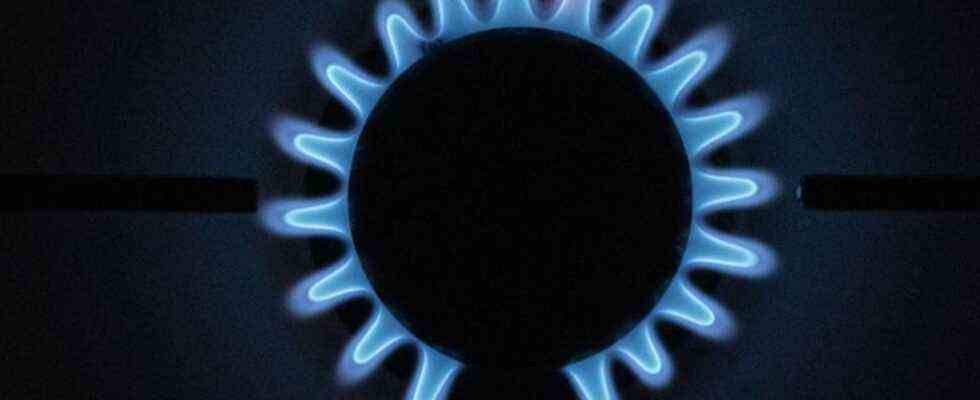consumer
Price brakes for energy costs are acutely sought
Gas is becoming more and more expensive. Photo: Marijan Murat / dpa
© dpa-infocom GmbH
As a general rule, energy should not become cheaper for more climate protection – there is actually a fairly broad consensus on this. But now high price increases are causing concerns. Do you have to take countermeasures?
In view of the steep cost jumps in heating and refueling, price brakes are coming to the fore for many households – and this is urgent for the approaching winter.
The consumer advice centers are calling on the incumbent federal government to initiate preliminary work for a higher housing benefit in order to support people with low incomes in particular. Tax relief is also under discussion. In addition to the acute price crisis, it is about setting the course in order to socially cushion rising energy prices for more climate protection.
The head of the Federation of German Consumer Organizations (vzbv), Klaus Müller, called for an increase in the housing benefit, “so that nobody has to freeze this winter”. This helps precisely people who are in need, distributed across the entire population it would not be financially viable. The consumer advocates did not commit to the amount of a surcharge. It should take a closer look at how prices are developing in November, said Müller. “Significant transfers” to customers can then be expected in December, January and February. The housing benefit is a state rent subsidy, and owners who use their apartments themselves can also receive it.
There is also a need for regulations to suspend electricity and gas blocks, which can threaten defaulting payments, said Müller, referring to a role model in the Corona crisis. The government that is still in office is also “very well in a position to prepare things” that the new government could decide immediately after the election of Chancellor. The federal government announced on Wednesday that it would not be able to announce any additional measures. Müller called this “negligent”.
Deutsche Umwelthilfe spoke out in favor of reducing the electricity tax to the minimum permitted by the EU. In addition, the green electricity surcharge should be reduced – with income that the state receives from the CO2 price. In Germany, since the beginning of the year, 25 euros per tonne of carbon dioxide (CO2) that is produced when diesel, petrol, heating oil and natural gas are burned have been due.
The energy expert at the German Institute for Economic Research (DIW), Claudia Kemfert, suggested a “per capita reimbursement” of the CO2 tax. This would relieve those on low incomes, in particular, she told the German press agency. In relative terms, households with lower incomes would have to spend a higher proportion of it on energy.
The latest proposals by the EU Commission for a “tool kit” for the fight against more expensive energy met with a mixed response. The homeowners association Haus & Grund called on the government to make use of it and to reduce taxes on gas by 50 percent immediately. In addition, CO2 pricing should be suspended for the next six months. This would ensure that heating and hot water remain affordable in winter. “The failed energy policy must not be carried out on the back of the consumer.”
From the point of view of consumer advice centers, there is “nothing new” in the paper from Brussels, as Müller said. The commission is only playing the ball back to the nation states. The proposals presented on Wednesday include direct payments, tax breaks and subsidies for small companies. The EU Commission is also considering medium-term reforms to make the European energy market more robust.
The Saarland Prime Minister Tobias Hans (CDU) told the “Rheinische Post” (Friday) that when the CO2 tax was introduced for private households at the beginning of the year, no one could foresee, “that energy prices will rise as rapidly as they do now – regardless of this that worldwide. ” Price signals are particularly important for climate protection. “But this must not lead to breaks in the economy or social hardship.” According to the newspaper, Hans suggested, among other things, that the mineral oil and natural gas tax be reduced for a limited period of time. A permanent reduction in the electricity tax, which currently amounts to 2.05 cents per kilowatt hour, is also overdue.
The Verdi union issued “clearly noticeable increases in real wages” as a target for future collective bargaining rounds. The chairman Frank Werneke told the editorial network Germany: “Since the price jumps for food, energy and petrol particularly affect people with lower and middle incomes, our tariff demands include minimum amounts that make the wage increases for these employees above average.”
In September consumer prices were up 4.1 percent compared to the same month last year. The main reasons for this were higher energy costs and the value-added tax that was raised again after a reduction.
Economist Kemfert explained that rising prices for crude oil, natural gas and coal can also be attributed to the economic recovery after the Corona crisis. In principle, however, the following applies: «The prices for fossil fuels are the problem. If we hadn’t slowed down the energy transition, we would have a share of around 80 percent from renewable energies today, which would depress prices. ” Consumer advocate Müller also urged speed with the expansion of renewables. A framework is needed so that the economy can decouple itself from fossil fuels as quickly as possible and consumers have climate-friendly alternatives available.

